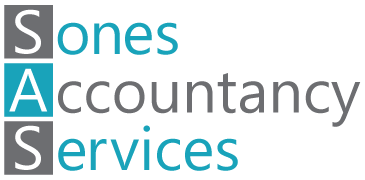The last time the UK was in a recession was in 2020 following Covid-19. The economy plunged by 10%, making it the worst economic performance for the UK in 300 years. Whilst at the moment, it looks like we will get away with a recession in 2023, that threat still looms. If we are lucky enough to avoid it, forecasters tell us that things will remain sluggish for a few years yet. Although the Covid-19 recession and 2023’s climate are different, both require businesses to think and act differently. The ability to adapt and overcome in these uncertain times because more prevalent.
The good news is that it is not all doom and gloom. Economic downturns are not always a bad thing for businesses. In fact, they can offer the opportunity for some to expand and thrive. To ensure your business thrives during an economic downturn, consider these strategies:
Diversify Services
Find additional revenue streams and secure your current ones. Expanding your offerings to offer a variety of services can attract different types of clients and provide a more stable income.
Quality Work
Consistently deliver high quality work to retain loyal customers and gain referrals. Satisfied clients are more likely to recommend your services to others, which is invaluable during economic hardships.
Cost Control
Regularly review your operational expenses. Look for areas where you can reduce costs without compromising quality. Negotiate better deals with suppliers and consider energy efficient equipment to save on utilities.
Marketing
Invest in marketing both online and offline. Create a professional website, use social media, and engage in local SEO to make your business more visible to potential customers. Offline, use flyers, postcards, and local advertising to reach your target market.
Customer Relationships
Build strong relationships with your clients by providing excellent customer service. Communicate effectively, address concerns promptly, and go the extra mile to exceed customer expectations.
Financial Management
Keep a close eye on your cash flow. Create a budget and consider setting aside an emergency fund to cover unexpected expenses. Also, it is wise to consult with a financial advisor during challenging times.
Competitive Pricing
Regularly review your pricing strategy. Ensure that you are competitive in the market while still covering your costs and maintaining a profit margin.
Employee Training
Cross train your employees so they can perform multiple roles. This flexibility can help you adapt to fluctuations in demand without overextending your workforce.
Special Offers
Create promotional packages or discounts for new customers or for existing customers who refer others. This can stimulate business during tough times.
Stay Informed
Stay updated on economic trends and be prepared to adjust your business strategies accordingly. For example, you might need to scale down or diversify further based on market conditions.
Networking
Establish relationships with other local businesses, supply companies etc. These connections can lead to collaborations, referrals, or cost saving opportunities.
Adaptability
Be open to adapting your services or business model to the changing economic landscape. This may involve exploring emerging trends or technologies in your industry.
Government Assistance
Research government assistance programmes, grants, or loans that might be available to support businesses during economic downturns. These can provide much needed financial relief.
Resilience
Maintain a positive attitude and demonstrate resilience. A confident and adaptable approach can inspire confidence in your clients and motivate your team to weather economic challenges effectively.
By implementing these strategies and continually assessing and adjusting your tactics, your business can not only survive but also thrive during economic downturns. Stay positive!








